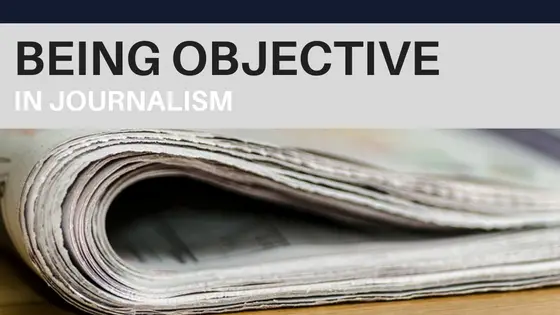
In this podcast Shweiki Media (a company that offers printing services in San Antonio, TX) chats with Gini Dietrich, founder, and CEO of Arment Dietrich, a Chicago-based integrated marketing communications firm. They discussed objectivism in journalism and how social media, page views, and Google are affecting it.
Are People Being Objective in Journalism?
One of the first subjects they touch on is objectivism in journalism, and whether Gini feels as though journalists still use this approach or whether sensationalism has taken over. Drawing on a personal experience, Gini describes what she saw in The New York Times during the Republican National Committee soiree, the day after Donald Trump gave his speech to accept the nomination. On the front page, Trump is essentially labeled an “idiot” and is ridiculed for not taking the opportunity to talk about his background.
Gini explains that she feels as though The New York Times was full of opinion, describing the headlines as “clickbait.” This is despite the fact that as a newspaper, its reports should be somewhat based on facts. Therefore, she feels that it’s no longer about journalistic integrity – instead, sensationalism rules the day.
When asked who she feels are the biggest culprits of sensationalism, Gini explains that part of can be attributed to human beings, and how we all like a good “train wreck.” Drawing on this need for sensationalism, Gini feels as though companies like BuzzFeed and Tech Crunch are at the heart of it.
Gini also suggests that there aren’t any national papers doing it the right way. Instead, she draws on international papers such as The Guardian (which she believes to be a little fairer and balanced), and the BBC and the Wall Street Journal when describing organizations that do it the right way.
What is a Filter Bubble and How Does Social Media Play a Role in this?
The interviewer from magazine printing company, Shweiki Media, describes how he watches Fox News because he wants to hear the other side and not just people massaging his opinion. But both he and Gini admit that they’re a minority and that not many others will do this.
This leads Gini on to explain what a filter bubble is, describing how people tend to read or watch the news that they agree with. They, therefore, live in a bubble that they’ve created for themselves because they’ve filtered out the news they don’t agree with. She also says that these filter bubbles can be found on Facebook because of who people allow into their stream.
However, the interview also looks at the positive attributes that social media has created and how, because of the web, many problems have been brought to light. Gini describes how she watched ESPN’s special on O.J. Simpson and found one of the most interesting things to be that nothing’s changed. Black men are still being killed by cops and it’s never been brought to light until now, and she thinks this is because of social media and the megaphone it gives people.
Could Monetization Work for Newsworthy Sites?
The interview then moves onto the idea of monetizing newsworthy sites and whether Gini feels as though this could resolve some of the sensationalism. Gini explains that it depends on the site and the information they’re creating.
As a New York Times subscriber, she’s never received an email or survey asking her what she would pay for. But if she could get one particular question answered a month, she’d pay 49 dollars a month for that. She questions whether this is realistic but also adds that if somebody out there could do it, that would be worth it.
Discussing this lack of trust that’s been created within the news, Gini explains that she doesn’t think the “big guys” are trustworthy. Instead, she believes that it is up to the individuals of society to be as educated as they can and to try and listen to both sides. Then, before they share information, they need to make sure it’s right.
To explain this point, Gini uses the example of when Steven Spielberg stood in front of one of the dinosaurs from Jurassic Park. This went viral because people believed he’d shot it and was using it as a trophy. Hardly anybody saw that it was a dinosaur, and she thinks it is these critical thinking skills that are missing. She believes people have the attention spans of gnats, and that they are incredulous, so they share it, and then they’ve perpetuated it.
What’s the Future of Journalism?
Moving onto the future of journalism, Gini and the interviewer discuss how they see the role of journalists changing. Gini feels as though it will be certain individuals who see what’s what wrong with the world and have an idea on how to monetize that will become more trusted than “traditional” media.
They also discuss how they feel there will be a growing demand for high-quality journalism. Suggesting the Penguin updates on Google did away with the “Just write, and stop, and go. It doesn’t matter” theory, they feel as though the quality of what you’re reading that has become important again. But Gini also adds that while journalists are still being paid based on the page views they’re getting, they’re going to continue to create something sensational. So until someone finds a way of monetizing newsworthy sites, sensationalism will continue to be a predominant part of journalism.

You can learn more about Gini on her website is spinsucks.com or on Twitter @GiniDietrich


